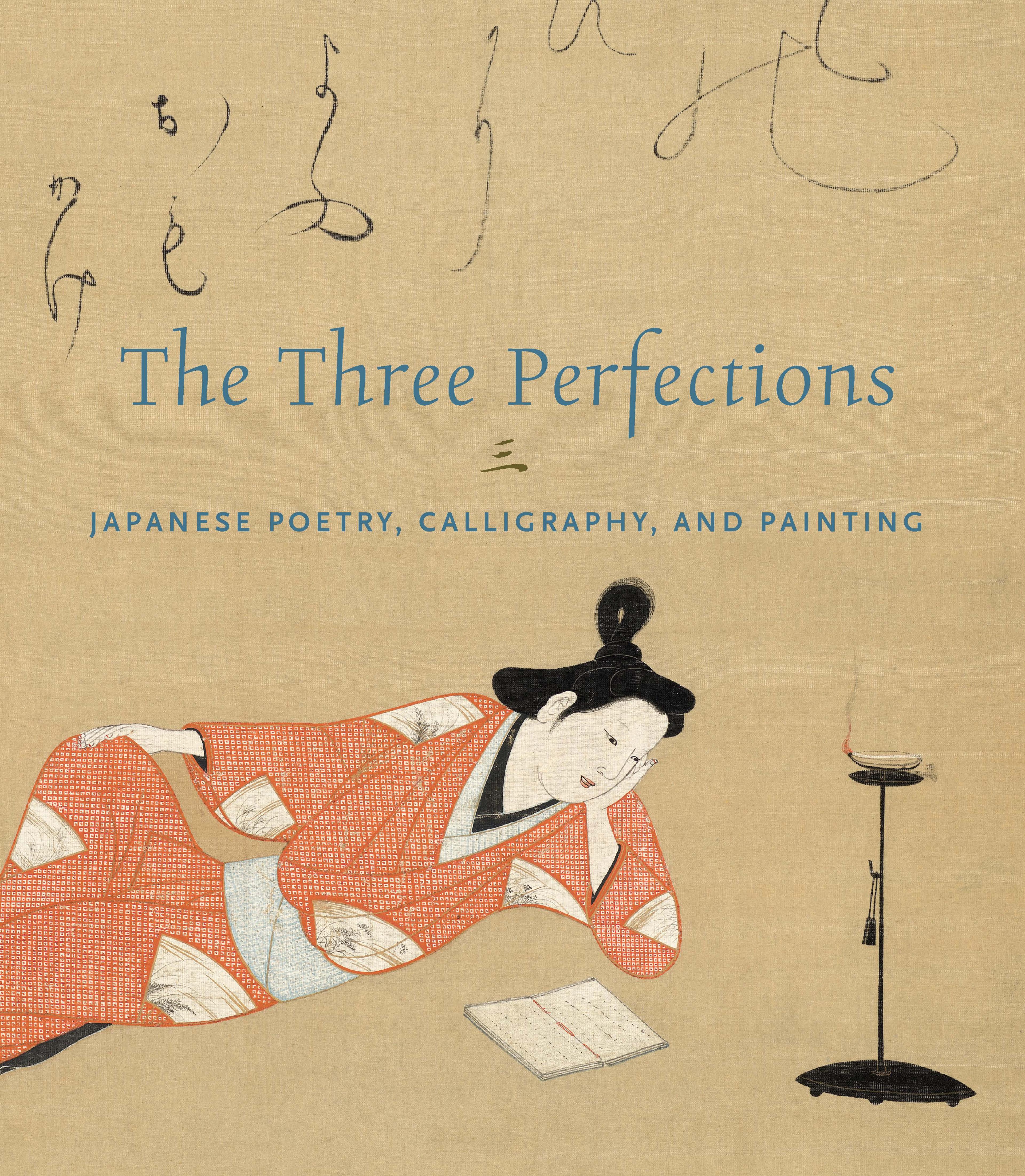Chinese Verse on Spiritual Enlightenment
This single-column of dynamic, rapidly and fluidly brushed, faintly angled Chinese characters in cursive script comprises a Buddhist adage, composed in a couplet of five-character verse. It can be deciphered and translated as follows:
霊機活潑〻 透脱任當人
Chinese pronunciation:
Lingji huopopo, toutuo rendang ren
Parsing in Japanese:
霊機、活スルコト潑潑タリトモ、
透脱ハ當人ニ任サルル.
A surge in inspiration
with untrammeled vitality—
Enlightenment depends on
each person’s own efforts.
(Translated by Tim Zhang)
The term lingji (Japanese: reiki) 霊機 suggests inspired wisdom and in early Daoist texts has the connotation of a supernatural experience. In Chan teaching, enlightenment is something that each person must strive for through their own diligent religious practice including meditation and study with a master.
The characters in the right column, unusually written in characters as large as the main text, give the date the work was brushed: mid-spring of the bingshen year (1656). On the left, also in large characters, is the monk Feiyin Tongrong’s lengthy signature, mentioning that he composed this work while at Jingshan monastery in Hangzhou. Feiyin is declaring in this his signature that he belongs to the thirty-fifth generation of the Nanyue sect.
霊機活潑〻 透脱任當人
Chinese pronunciation:
Lingji huopopo, toutuo rendang ren
Parsing in Japanese:
霊機、活スルコト潑潑タリトモ、
透脱ハ當人ニ任サルル.
A surge in inspiration
with untrammeled vitality—
Enlightenment depends on
each person’s own efforts.
(Translated by Tim Zhang)
The term lingji (Japanese: reiki) 霊機 suggests inspired wisdom and in early Daoist texts has the connotation of a supernatural experience. In Chan teaching, enlightenment is something that each person must strive for through their own diligent religious practice including meditation and study with a master.
The characters in the right column, unusually written in characters as large as the main text, give the date the work was brushed: mid-spring of the bingshen year (1656). On the left, also in large characters, is the monk Feiyin Tongrong’s lengthy signature, mentioning that he composed this work while at Jingshan monastery in Hangzhou. Feiyin is declaring in this his signature that he belongs to the thirty-fifth generation of the Nanyue sect.
Artwork Details
- 費隠通容筆 十字一行「霊機」
- Title: Chinese Verse on Spiritual Enlightenment
- Artist: Feiyin Tongrong (Chinese, 1593–1661) (Japanese: Hiin Tsūyō) 費隠通容,
- Period: Qing dynasty (1644–1911)
- Date: 1656
- Culture: Japan
- Medium: Hanging scroll; ink on paper
- Dimensions: Image: 50 × 11 3/8 in. (127 × 28.9 cm)
Overall with mounting: 83 3/16 × 16 3/4 in. (211.3 × 42.5 cm) - Classification: Calligraphy
- Credit Line: Mary and Cheney Cowles Collection, Gift of Mary and Cheney Cowles, 2021
- Object Number: 2021.398.16
- Curatorial Department: Asian Art
More Artwork
Research Resources
The Met provides unparalleled resources for research and welcomes an international community of students and scholars. The Met's Open Access API is where creators and researchers can connect to the The Met collection. Open Access data and public domain images are available for unrestricted commercial and noncommercial use without permission or fee.
To request images under copyright and other restrictions, please use this Image Request form.
Feedback
We continue to research and examine historical and cultural context for objects in The Met collection. If you have comments or questions about this object record, please contact us using the form below. The Museum looks forward to receiving your comments.
